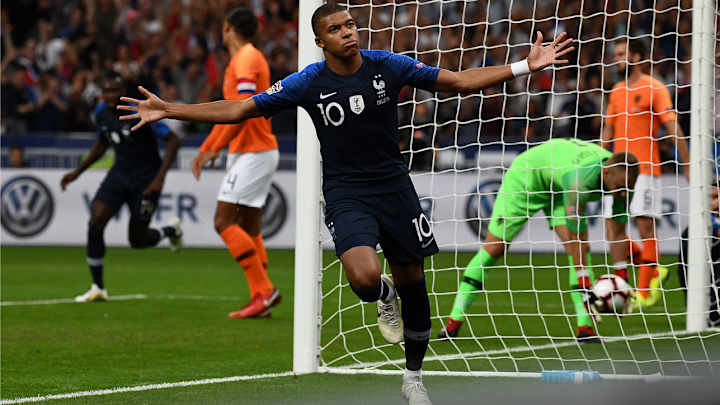The Biggest Question Facing the New Nations League Concept

The UEFA Nations League is only a few days old, but it was always going to be met with one question: How much more seriously will teams take it than friendlies?
It's hard to introduce a new competition and set the standard with a sales pitch. The upcoming Campeones Cup between the reigning MLS and Liga MX champion, for instance, is supposed to crown "the best club in North America" based on promotional materials. But then what's the purpose of the region's Champions League? Fitting more high-stakes matches on the calendar is a noble and ambitious idea, but the teams themselves are the ones who will determine whether it takes or not. Simply put, no European contender is going to put more stock in the Nations League than the European Championship.
But even so, the earliest possible returns in Europe's guinea pig are promising, to a degree. The new tournament has showcased a few headlining matches thus far, and they've been played in a competitive manner, at least more so than most post-summer-tournament friendlies in the past. Germany and France, for instance, appeared to waver back and forth between friendly mode and meaningful-bout mode in their 0-0 draw, which involved a bit more intensity and focus than a typical exhibition between powers otherwise might.
France, in fact, played both of its Nations League matches so far with the same starting lineup that won the World Cup, save for at goalkeeper, where Alphonse Areola deputized in place of the injured Hugo Lloris.
Making Sense of the UEFA Nations League–and How it Will Impact Euro 2020
Not all nations are positioned to go full-throttle, of course. Some are in the midst of transitional periods, while others are weighing the pros and cons of calling in full-strength teams after a long club season capped by a busy summer. Some stars simply need a rest (Cristiano Ronaldo among them), and some coaches will still take the opportunity to get a wider glimpse at their player pool while casting an eye on the next 2-4 years. Not every match is played with the sole intention of getting a result. It's all part of the international process.
That process has taken a twist, though, with a competition that incentivizes those who are successful and could be detrimental to those who don't take it as seriously or who fail to succeed. Whereas there was no tangible punishment for going through a losing spell of friendlies or a false sense of security for those who go on a winning streak through them, there's a bit more accountability and judgment on the line should a nation either succumb to relegation and be forced to play with so-called lesser foes or, on the contrary, prove themselves as worthy adversaries.
“I knew this period would be an exceptional challenge and will tell us a lot about exactly where we stand, but I think that’s good for us," England manager Gareth Southgate said after a 2-1 loss to Spain on Saturday. "We have two of the world’s best teams (Spain and Croatia) in our group. We have to go through those experiences, otherwise we would go into a finals tournament (Euro 2020) in two years’ time, and, if we were just playing qualifiers now against lower standard opposition, we might have a perception of where we are, which would be false. I think after the next few months we will be very clear.”
Regardless if all participants take the Nations League as Southgate and England appear to be, the fact that there is a more competitive structure in place on the international calendar is a win in itself. Friendlies serve their purpose, whether it be a low-stakes environment to experiment and try new things, or whether, cynically, it's for the cash grab. But where they really lose their way is when they devolve into a series of substitutions for the final 30 minutes. There's little to glean from a match when it's not played with the same baseline, standard rules as one in an official competition. While more players being able to get a runout is an obvious benefit, the matches' takeaways are frequently paired with asterisks.
After Winning World Cup, Will France, Deschamps Show Their Next Gear?
The Nations League is played like an official competition, because, as we've been directed, it is one. Managers have to be a bit more selective with how they proceed, and, if momentum builds as UEFA hopes it will, there will be ramifications for players and coaches who don't perform up to par on the Nations League stage. It's hard to see a manager getting the sack for a poor Nations League run, especially if qualifying for Euros and the World Cup goes smoothly, but perhaps, in time, the competition will grow to have a greater stature.
That all brings us back to the original question and its more detailed accompaniment. Will the lure of a secondary continental championship for some coupled with the shame of relegation and draw of potential promotion for others ensure a maximum effort from everyone involved? We'll continue to find out over the course of the next nine months. One thing is for certain, though: It beats friendlies.

Avi Creditor is a senior editor and has covered soccer for more than a decade. He’s also a scrappy left back.